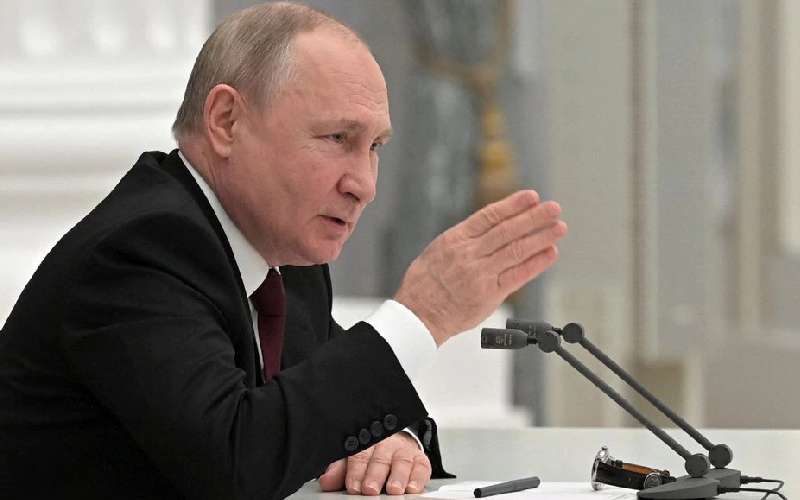×
The Standard e-Paper
Smart Minds Choose Us

Russian President Vladimir Putin chairs a meeting with members of the Security Council in Moscow, Russia February 21, 2022. [Reuters]
The European Union (EU), US, UK, and several of its allies are moving to block Russia from using Swift as part of economic sanctions over its invasion of Ukraine.